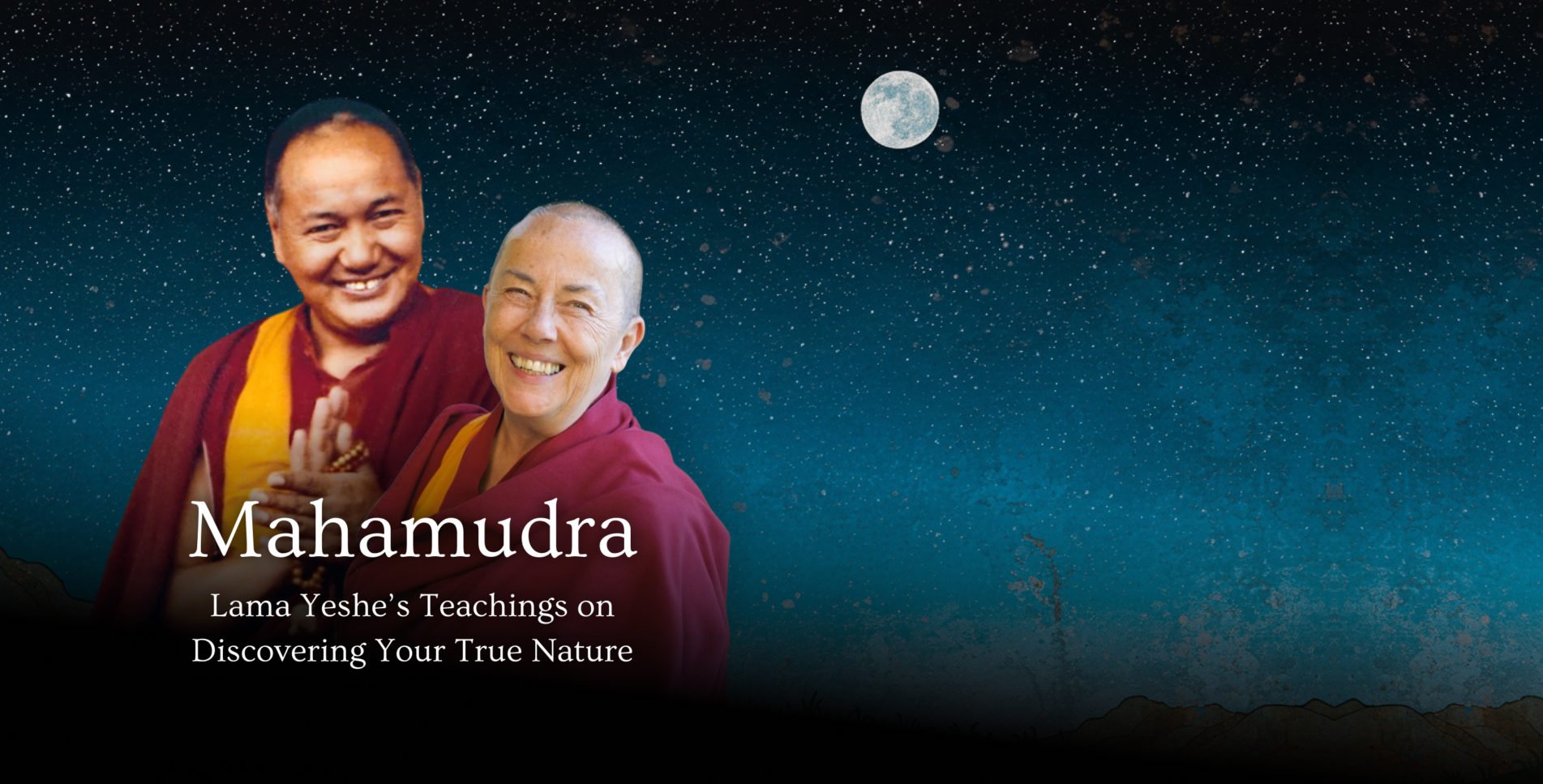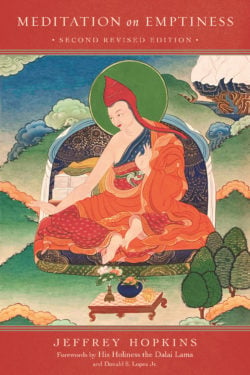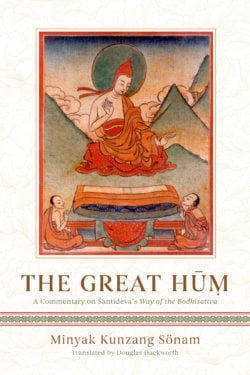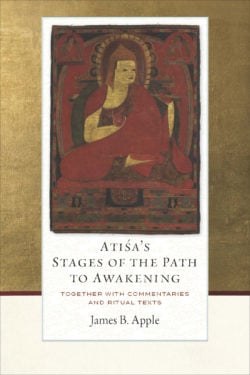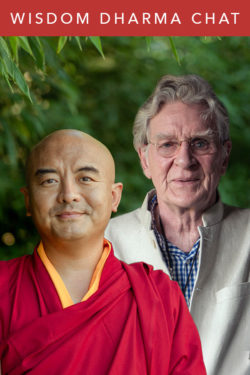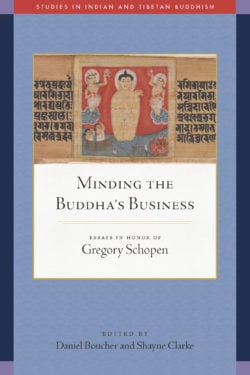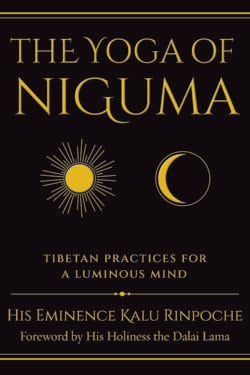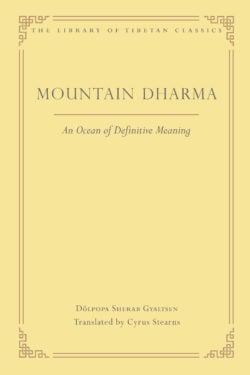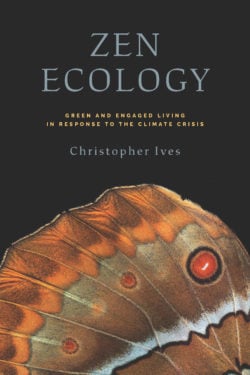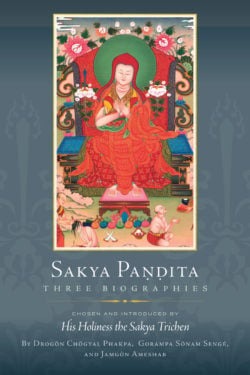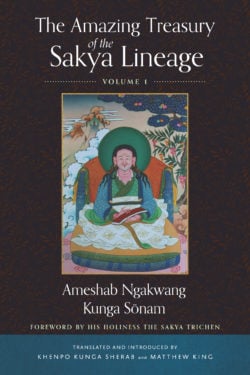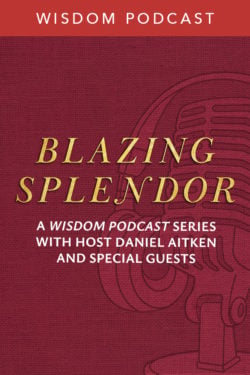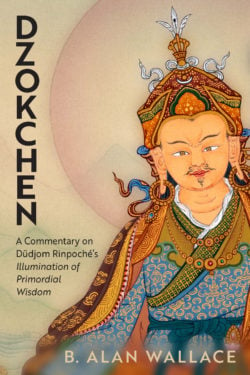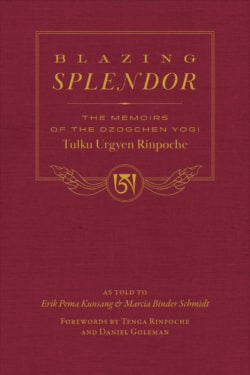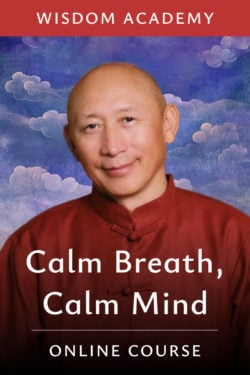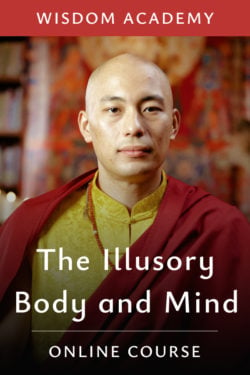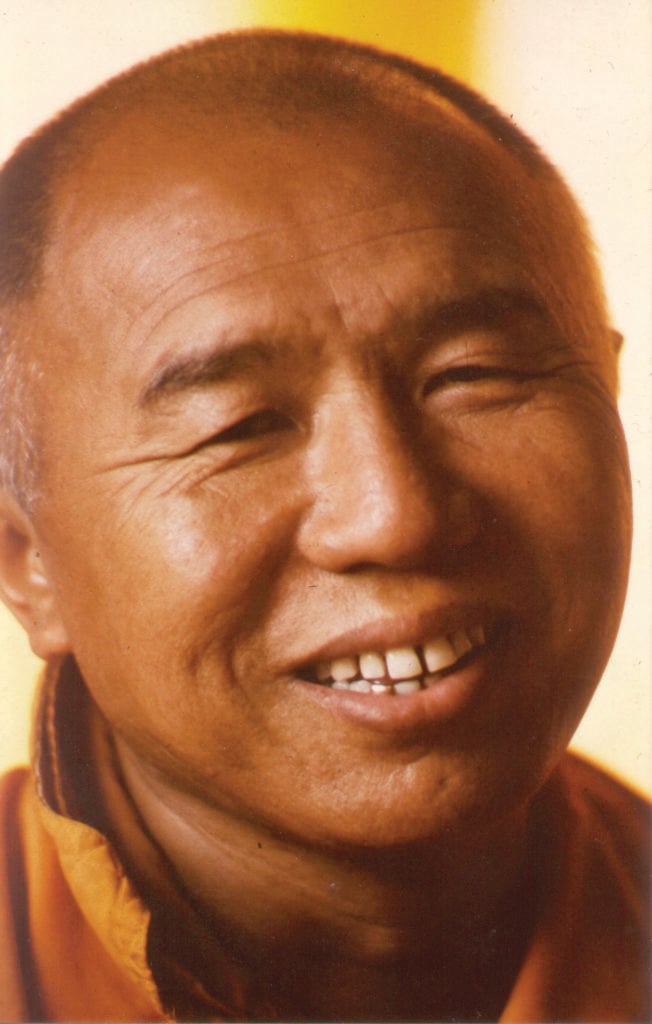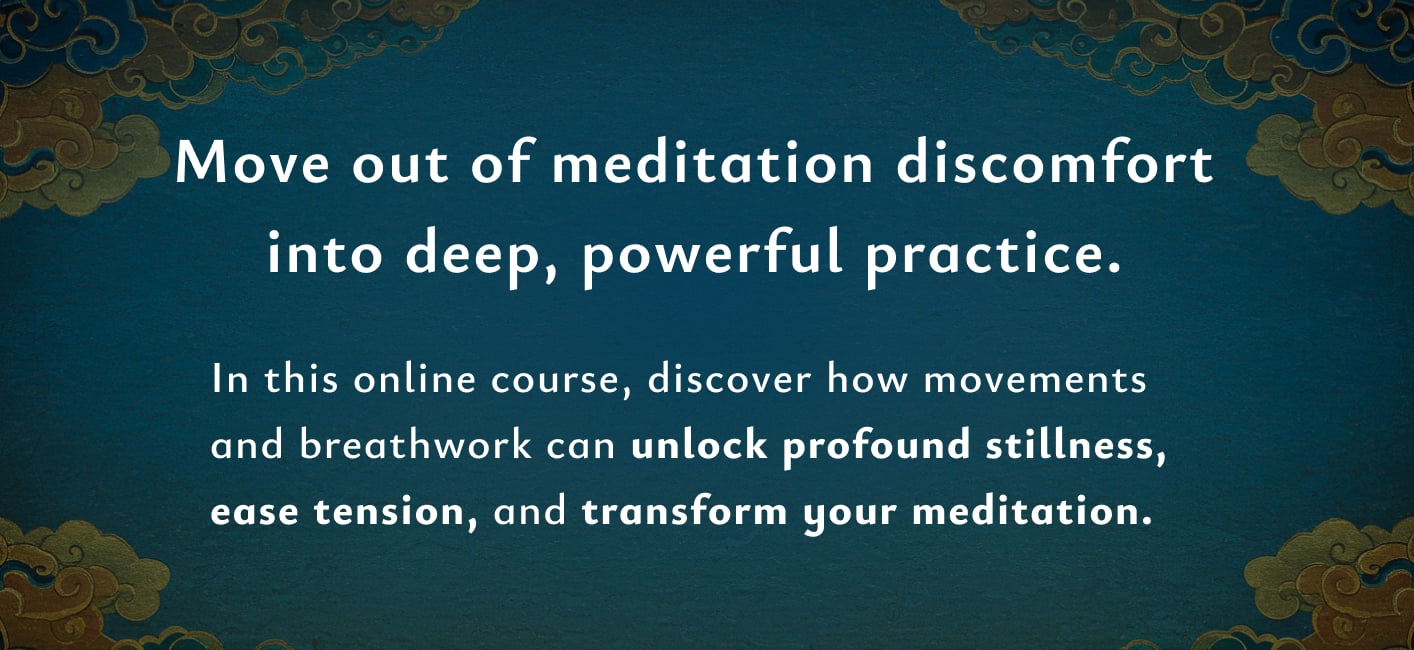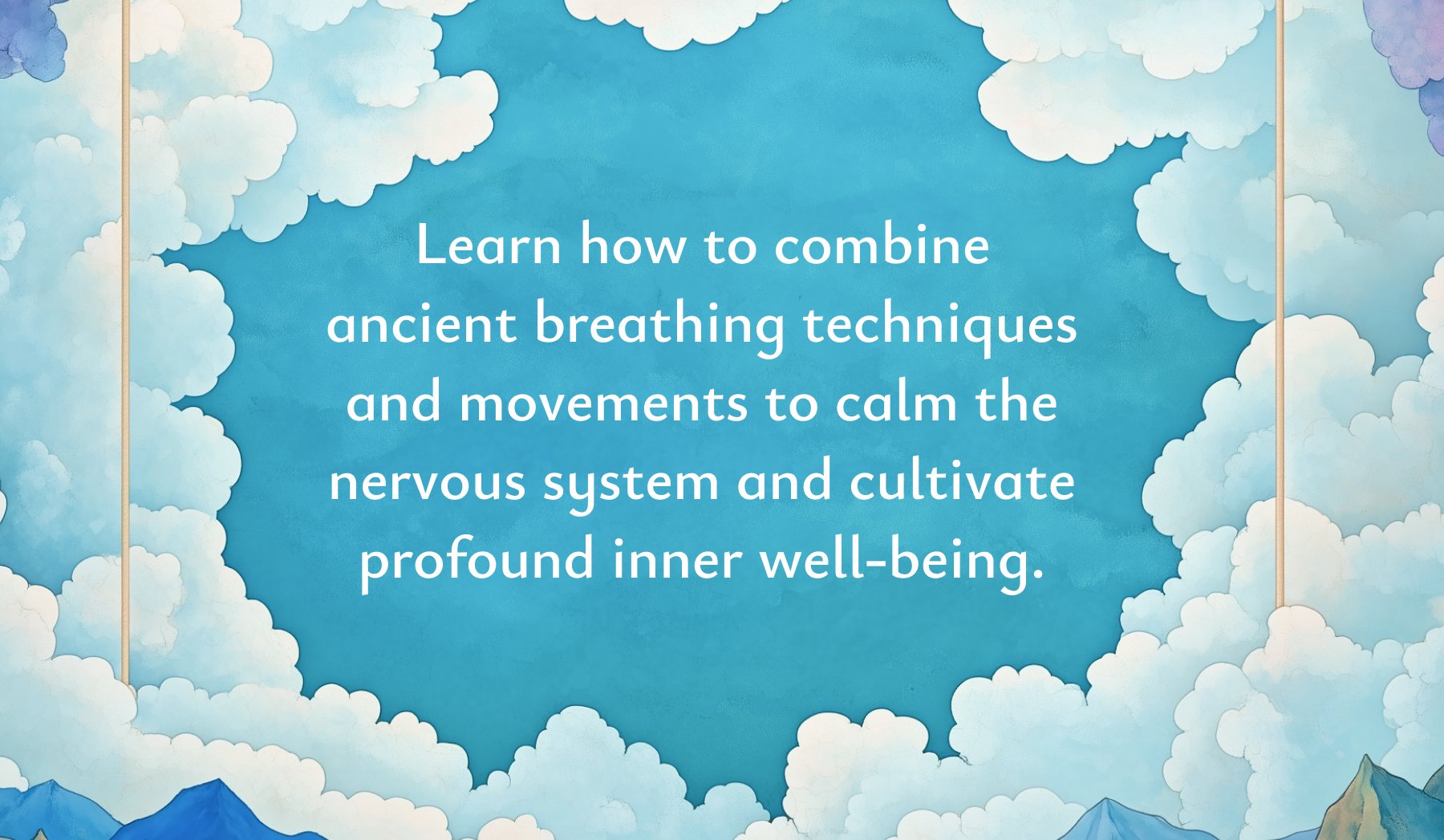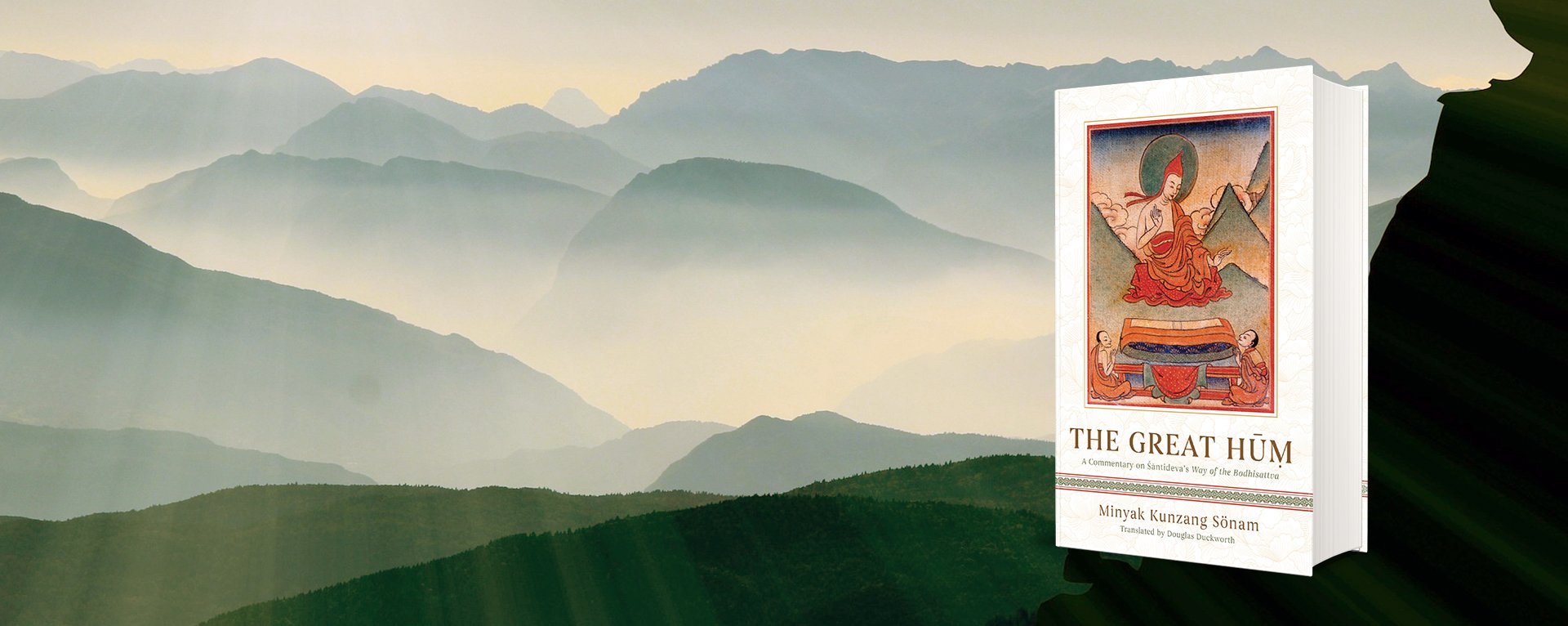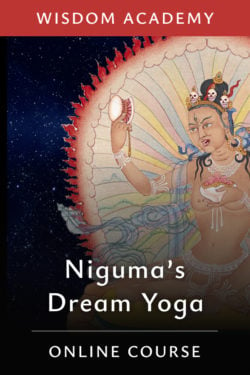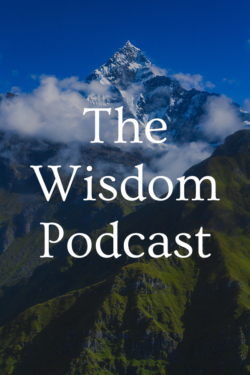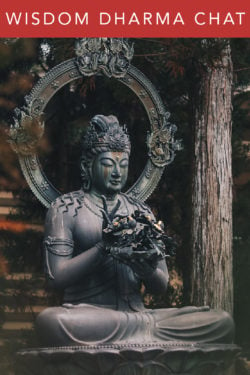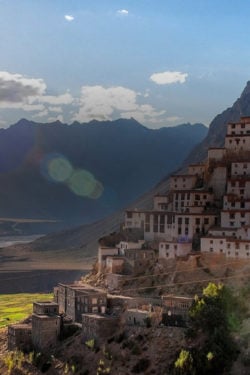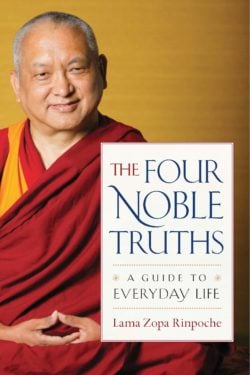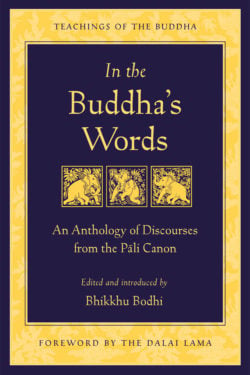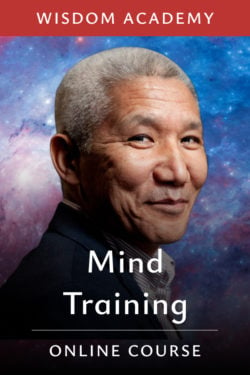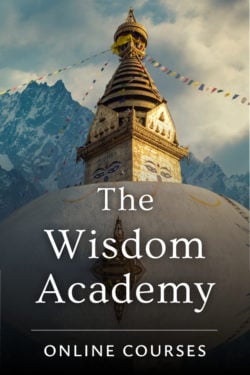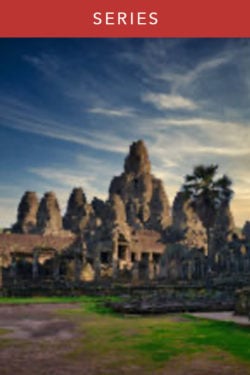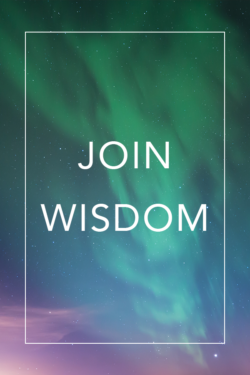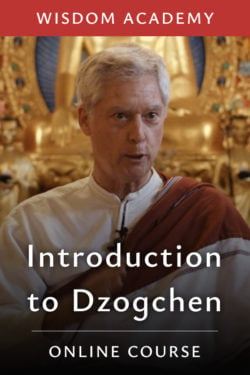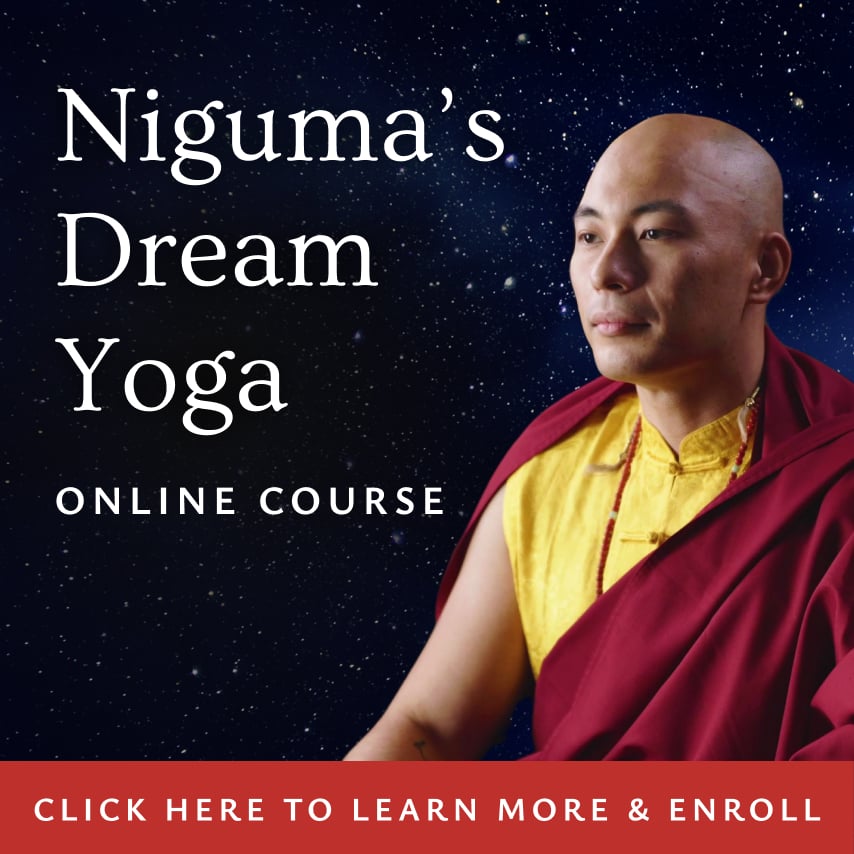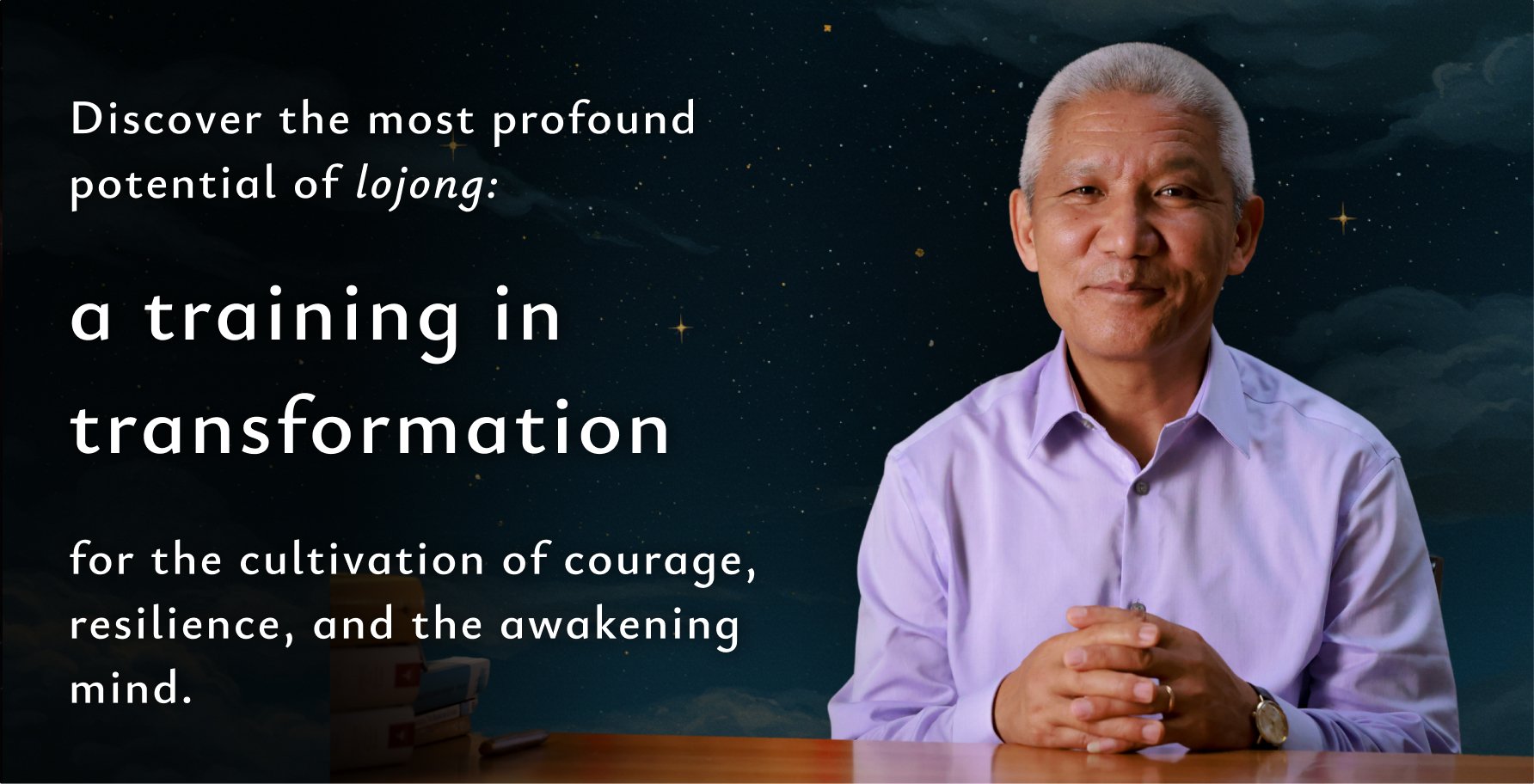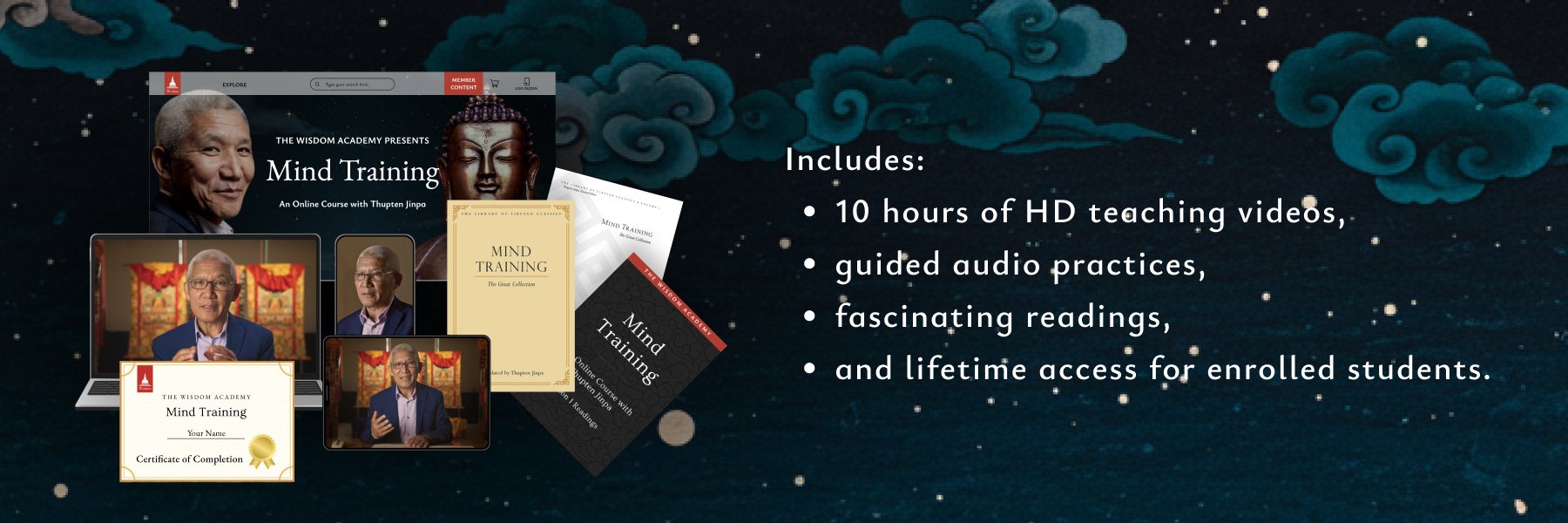New & Featured
Meditation on Emptiness
A comprehensive and in-depth survey of the philosophical underpinnings of the Dalai Lama’s Geluk tradition written by one of the founding figures of Tibetan Buddhist studies in the West.
In this classic work of Buddhist studies scholarship, Jeffrey Hopkins—one of the world’s foremost scholar-practitioners of Tibetan Buddhism—offers a clear exposition of the Prāsaṇgika-Madhyamaka view of emptiness as presented in the Geluk tradition of Tibetan Buddhism. In bringing this remarkable and complex philosophy to life, he describes the meditational practices by which emptiness can be realized and shows throughout that, far from being merely abstract scholasticism, these classic teachings can be vivid and utterly practical.
Treating subjects ranging from the progressive path of meditation to the nature of emptiness and how it can be directly realized, this wide-ranging book guides the reader on an itinerary of intellectual and spiritual discovery, unpacking the distinctive Geluk synthesis of scholastic and meditative practices. The first study in any Western language to provide a comprehensive treatment of the doctrines and practices of a Tibetan Buddhist school, this book is indispensable for those wishing to delve deeply into Buddhist thought and its practical relevance.
Douglas Duckworth: The Great Hūṃ (#206)
In this Wisdom Podcast episode host Daniel Aitken joins Douglas Duckworth as they discuss Douglas’s translation The Great Hūṃ. Douglas Duckworth is a professor of religion at Temple University in Philadelphia. He received his PhD in religious studies (Indo-Tibetan Buddhism) from the University of Virginia in 2005, and he previously taught at Kathmandu University. In this episode, Douglas shares his journey of becoming interested in the text during his studies in India and Nepal, and he shares the challenges and rewards of working on such a monumental text.
You’ll hear Daniel and Douglas discuss:
- the text’s structure, its thematic elements, the profound philosophical implications of bodhicitta;
- the structure and significance of the Bodhicaryāvatāra;
- the ninth chapter’s unique challenges; and
- much more!

Remember to subscribe to the Wisdom Podcast for more great conversations on Buddhism, meditation, and mindfulness. If you enjoy the show please consider giving us a 5-star rating in Apple Podcasts—it’s a great support to us and helps other people find the podcast. Thank you!
The Great Hūṃ
Śāntideva’s Way of the Bodhisattva (Bodhicaryāvatāra) is without a doubt one of the greatest masterpieces of Indian Buddhism and the single most influential text on Mahāyāna ethical theory. Since it was composed in around the eighth century, it has continuously animated the living tradition, especially in Tibet but now in the West as well, as more translations have become available. Its poetic evocations of the spirit of awakening allow readers to enter the mind of the bodhisattva.
Its longest commentary in any language is the one translated here, by the nineteenth-century master Minyak Kunzang Sönam. It came to be known as the Great Hūṃ because it fills the entirety of the third or hūṃ volume of the author’s collected works. Citing hundreds of sūtras, he shows how Śāntideva’s verses are beautifully integrated within, and express, the Buddhist textual universe. In particular, he ties Śāntideva’s verses with the Anthology of Training, the thematic collection of scriptural citations also compiled by Śāntideva, creating a detailed tapestry of Mahāyāna thought and practice. This volume presents Kunzang Sönam’s commentary on the first eight chapters, detailing the generation of the spirit of awakening, the cultivation of positive qualities, and the practice of meditation. Embedded in the commentary is a fresh translation of Śāntideva’s verses, making this an unparalleled guide to appreciating their layers of meaning and applying them in one’s practice and life.
You can access the translation of Śāntideva’s verses here.
You can access the complete native outline (sa bcad) here.
Atiśa’s Stages of the Path to Awakening
This book contains a lost Stages of the Path (Lamrim) work composed by the originator of the genre, Atiśa, one of the greatest Indian Buddhist masters to ever set foot in Tibet.
Nearly a millennium ago, the great Indian Buddhist master Atiśa Dīpaṃkaraśrījñāna (ca. 982–1054) wrote a guidebook for realizing all the stages to awakening at the repeated request of his closest Tibetan disciple. Atiśa is famously the author of the Lamp for the Path to Awakening (Bodhipathapradipa), a short work in verse, but this longer prose work has been virtually unknown, even in Tibet—until now. Atiśa’s Stages of the Path Awakening (Bodhipathakrama), translated here, synthesizes all aspects of Buddhist practice, from the very beginning of the path—reflecting on the fortunate opportunity of human rebirth—up through to attaining omniscient buddhahood by nondual meditation. The Indian master’s faithful disciple Dromtönpa kept these teachings secret, and they were only transmitted to select disciples in a closely guarded transmission, but the lineage died out centuries ago, after Dromtönpa’s Kadam school was eclipsed by history.
Now this significant work of Buddhist path literature has become available owing to recently recovered manuscripts of the Kadampas. This book offers a study and complete translation from the Tibetan of this monument of guidance on the Buddhist path accompanied by the commentaries and ritual texts that were transmitted alongside Atiśa’s text. Apple’s substantial introduction includes a structural comparison with Atiśa’s famous work, charts the transmission lineage for the present work before it died out, and explores various hypotheses for why their fates diverged. Recovered from the contingencies of history, this book brings to life one of the most holistic and integrated approaches to the highest realizations of the Indian Buddhist path ever transmitted in Tibet.
Wisdom Dharma Chat | Yongey Mingyur Rinpoche & Professor Robert Thurman
In this special Wisdom Dharma Chats episode, presented in collaboration with Tergar International and Tibet House US, Yongey Mingyur Rinpoche and Professor Robert Thurman come together for a rich and wide-ranging conversation on the practical application of Buddhist teachings in everyday life. With clarity, warmth, and humor, they explore tantric practice, the nature of Buddha’s potential, and the central role of meditation in transforming the mind.
Rinpoche, a renowned meditation master trained in the highest Vajrayana practices and known for his extended retreats and wandering pilgrimage through the Himalayas, brings firsthand insight into the lived experience of the Dharma. Thurman, a preeminent scholar of Indo-Tibetan Buddhist philosophy and a tireless advocate for its preservation, shares his deep textual knowledge and contemporary reflections on the relevance of the Buddhist worldview today.
Together, they discuss overcoming distraction, the role of compassion in both personal and societal contexts, and even reflect on the meeting point between artificial intelligence and consciousness. The session concludes with a short guided meditation from Rinpoche, offering participants a direct experience of present-moment awareness. With host Daniel Aitken guiding the conversation, this Wisdom Dharma Chat offers a rare and inspiring encounter with two remarkable teachers who bridge ancient wisdom and the modern world.
Meet Our Guests
 Yongey Mingyur Rinpoche
Yongey Mingyur Rinpoche
Mingyur Rinpoche is a world-renowned meditation teacher with personal experience of anxiety and panic attacks, which he suffered from throughout his childhood and into his teenage years, when he learned to transform his panic through meditation.
Born in Nepal in 1975, Mingyur Rinpoche began to study meditation as a young boy with his father, Tulku Urgyen Rinpoche, himself a well-respected Buddhist teacher.
As a child he became interested in contemporary science through conversations with scientists who were visiting his father, and as he grew older he began to collaborate with neuroscientists and psychologists, including Richard Davidson and Antoine Lutz at the University of Wisconsin, on research projects that study the effects of meditation on the brain and the mind.
Mingyur Rinpoche’s first book, The Joy of Living: Unlocking the Secret and Science of Happiness, debuted on the New York Times bestseller list and has been translated into over twenty languages. His second book, Joyful Wisdom: Embracing Change and Finding Freedom, explores how difficult emotions and challenging life situations can be used as stepping stones to discover joy and freedom. In his most recent book, In Love with the World, Mingyur Rinpoche shares how his meditation practice sustained him when he left his monastery to wander through India and the powerfully transformative insights he gained from the near-death experience he had at the beginning of his journey. Mingyur Rinpoche recently appeared in the Netflix series The Mind, Explained, in an episode about the benefits of mindfulness.
As the head of the Tergar Meditation Community, Mingyur Rinpoche supports groups of students in more than thirty countries, leading workshops around the world for new and returning students every year.
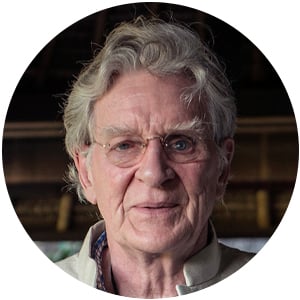 Robert Thurman
Robert Thurman
Bob Thurman, known in the academic circles as Professor Robert A.F. Thurman, is a talented popularizer of the Buddha’s teachings and the first Westerner Tibetan Buddhist monk ordained by His Holiness the Dalai Lama,
A charismatic speaker and author of many books on Tibet, Buddhism, art, politics and culture, Bob was named by The New York Times the leading American expert on Tibetan Buddhism, and was awarded the prestigious Padma Shri Award in 2020, for his help in recovering India’s ancient Buddhist heritage. Time Magazine chose him as one of the 25 most influential Americans in 1997, describing him as a “larger than life scholar-activist destined to convey the Dharma, the precious teachings of Shakyamuni Buddha, from Asia to America.”
Bob served as the Jey Tsong Khapa Professor of Indo-Tibetan Buddhist Studies in the Department of Religion at Columbia University for 30 years, until 2020. A very popular professor, students always felt his classes were “life-changing”. Bob is the founder and active president of Tibet House US, a non-profit organization dedicated to the preservation and promotion of Tibetan culture, and of the American Institute of Buddhist Studies, a non-profit affiliated with the Center for Buddhist Studies at Columbia University and dedicated to the publication of translations of important artistic and scientific Tibetan treatises.
His own search for enlightenment began while he was a university student at Harvard. After an accident in which he lost the use of an eye, Bob left school on a spiritual quest throughout Europe, the Middle East and Asia. He found his way to India, where he first saw His Holiness the Dalai Lama in 1962. After learning Tibetan and studying Buddhism, Bob became a Tibetan Buddhist monk and the first Westerner to be ordained by the Dalai Lama. Some years later, however, he offered up his robes when he realized he could be more effective in the American equivalent of a monastery: the university, returning to Harvard to finish his PhD.
As part of his long-term commitment to the Tibetan cause, at the request of H.H. the Dalai Lama, Bob co-founded Tibet House US in 1987 with Tenzin Tethong, Richard Gere, and Philip Glass, a non profit organization based in New York City and dedicated to the preservation and renaissance of Tibetan culture.
Inspired by his longtime good friend the Dalai Lama, Bob takes us along with him into an expanded vision of the world through the prisma of Tibetan Buddhism. He shares with us the sense of refuge in the Dharma, which unfailingly helps us clear away the shrouds of fear and confusion, sustains us with the cheerfulness of an enriched present, and opens a door to a path of realistic hope for a peaceful, kind, and wise future.
Minding the Buddha’s Business
Colleagues and former students of Gregory Schopen honor his path-breaking contributions to Buddhist studies with these articles on the early Mahayana, the monastic codes, and Buddhism’s art-historical and epigraphical remains.
This volume honors the profoundly transformative influence of Gregory Schopen’s many contributions to Buddhist studies. Eighteen articles by former students and colleagues focus on the areas of Schopen’s most noteworthy influence: the study of the Mahayana, particularly of its early sutra literature; the study of Vinaya, especially the narratives accompanying the rules for monks and nuns; and the study of Buddhist epigraphy and art history. Contributors demonstrate the ongoing significance of Schopen’s scholarship, including his very first article, on the cult of the book in the early Mahayana, published fifty years ago.
Schopen has repeatedly shown how the study of Buddhism has too often focused on scriptures and normative doctrines and not enough on the practical ideas and contexts that significantly impacted the lives of actual Buddhists. He sought to reveal these lived concerns in the massive trove of Buddhist inscriptions, which often expose the habits and ideas of the tradition’s most prominent donors (many of whom were monastics), as well as the everyday concerns of monks and nuns, whose views did not always dovetail with canonical sources. Even in his treatment of canonical sources, Schopen has shown that the standard portrait of a Buddhist monk or nun fails to match a careful reading of their law codes—his work on the Mulasarvastivada-vinaya has required scholars to substantially reimagine the legal and ritual obligations, as well as the economic concerns, that preoccupied the minds of Buddhist jurists.
Schopen has, in essence, brought the Buddha down to earth, revealing that this is precisely where most Indian Buddhists encountered him. The contributions in this celebratory volume reflect this legacy and Schopen’s considerable impact on our understanding of Buddhists in India.
Click here to see the table of contents.
The Yoga of Niguma
Now available! Get 20% off the cover price with code niguma20 until August 5.
Immerse yourself in the extraordinarily transcendent practice of the yoga of Niguma.
The yoga of Niguma comes to us from a secret tradition passed down over hundreds of years by Buddhist yogis in Tibet. The practice originated with the eleventh-century female yogini Niguma, who mastered and transmitted a tradition of remarkable practices that culminate in physical, spiritual, and emotional wellness. In this book, His Eminence Kalu Rinpoche, a Tibetan master who holds this lineage for today’s generation, is now opening up the practice to make its extraordinary benefits accessible to the modern yogi.
The yoga of Niguma consists of twenty-five sets of yogic exercises. Some are physically challenging while others are quite subtle in nature; all are grounded in meditation on the breath. Kalu Rinpoche illuminates the practice by sharing his own personal journey with the yoga of Niguma and how the lineage came to be. He also teaches us how we can prepare the mind for this practice with meditation and how to balance our emotions. Then, Rinpoche takes us step-by-step through the twenty-five illustrated sequences of Niguma yoga. Coauthor Michele Loew, an international yoga teacher, shares supportive Hatha yoga techniques that will bolster your Niguma yoga practice.
The yoga of Niguma is a revered method that integrates body, mind, and breath. Dive in to discover for yourself a gradual, profound groundswell of subtle awakening.
Rinpoche and Michele have recorded two full-length videos that demonstrate Niguma yoga sequences and supportive hatha yoga postures and supplement the instructions in the book. Click here to learn more and watch the videos.
You may also be interested in Rinpoche’s courses from Wisdom, Niguma’s Dream Yoga and The Illusory Body and Mind.
Mountain Dharma
A brilliant annotated translation of Dölpopa Sherab Gyaltsen’s Mountain Dharma that opens a masterpiece of the Jonang tradition to Western readers and presents Dölpopa’s provocative ideas about a true, eternal, and established reality that still impact Buddhism today.
The controversial master Dölpopa Sherab Gyaltsen shook Buddhist Tibet when he taught that an eternal enlightened essence, or buddha nature, exists in full form in all living beings. The ideas discussed in Mountain Dharma are still as provocative as when Dölpopa first taught them, impacting Buddhism to this day. Dölpopa identified the ultimate with the buddha nature, or sugata essence, which he held to be eternal and not empty of self-nature. The buddha nature is perfect, with all its characteristics inherently present in all living beings. It is only the impermanent and temporary afflictions veiling the buddha nature that are empty of self-nature and must be removed through the practice of the path to allow it to manifest. Dölpopa establishes the validity of his theories with an ocean of quotations selected from Indian Buddhist scriptures and treatises of indisputable authority, showing us that the ultimate is a true, eternal, and established reality, empty merely of other relative phenomena.
Learn more about the Library of Tibetan Classics
Learn about becoming a benefactor of the Library of Tibetan Classics
Wisdom Dharma Chat | Malcolm Smith – December 2024
Please enjoy this unedited recording of our Wisdom Dharma Chats episode with special guest Ācārya Malcolm Smith. Join host Daniel Aitken and Malcolm as they discuss Malcolm’s recent translation projects, his upcoming volume, Yoga of the Natural State: The Dzogchen Aural Lineage, scheduled to be released in 2025 and available for pre-order now, understanding key terms for liberation, and much more!
We’re also pleased to be able to offer our Friends of Wisdom Dharma Chats 30% off on all of Malcolm’s works with us. Use the code WDC24SMITH to save 30% on the following books and courses through the end of Thursday, December 12, 2024.
– Yoga of the Natural State (Available Dec. 2025)
– Buddhahood In This Life
– The Self-Arisen Vidya Tantra and the Self-Liberated Vidya Tantra
– The Tantra Without Syllables and The Blazing Lamp Tantra
– Dzogchen: Ten Key Terms – a Wisdom Academy Online Course
 ĀCĀRYA MALCOLM SMITH has been a student of the Great Perfection teachings since 1992 and graduated in 2009 from Shang Shung Institute’s School of Tibetan Medicine. He is a veteran of the traditional three-year solitary Tibetan Buddhist retreat, a beloved and published translator, and was awarded the Acharya degree from the Sakya Institute in 2004
ĀCĀRYA MALCOLM SMITH has been a student of the Great Perfection teachings since 1992 and graduated in 2009 from Shang Shung Institute’s School of Tibetan Medicine. He is a veteran of the traditional three-year solitary Tibetan Buddhist retreat, a beloved and published translator, and was awarded the Acharya degree from the Sakya Institute in 2004
Zen Ecology
Discover a way of living that can help you slow down and stay grounded—and at the same time reduce your ecological impact and engage more fully with the climate crisis.
It may seem as though living ecologically and engaging in activism sacrifices our own enjoyment and happiness on the altar of doing the right thing. In this book, professor, naturalist, and Buddhist author Christopher Ives offers an alternative: a way of living that can actually be more fulfilling than the modern consumerist lifestyle. Rather than deprivation, it can bring us richness.
In Zen Ecology, Chris outlines his environmental ethic as a series of concentric circles, beginning with ourselves and then moving outward into our communities, all the while focusing on spaciousness, mindfulness, generosity, and contentment. At the individual level, we deal with distraction, clutter, and ecological harm. Here, Chris offers ways to help us pay attention, simplify our lives, and lower our impact. Then, we explore how to envision our home as a “place of the Way,” with Zen monastic life as a model for this—without having to be a monk! Next, we realize our embeddedness in nature and emplace ourselves in community with others, including other forms of life. Finally, we build on this basis to engage in activism to create a world that is more supportive of ecological health and spiritual fulfillment.
In this way, we avoid the two extremes of apathy and burnout, and uncover a way of living that is simple, joyful, embedded in nature, connected to others in community, and supportive of collective action.
You may also be interested in Chris’s other books, Zen on the Trail, which explores the broad question of how to be outside in a meditative way, and Meditations on the Trail, which offers do-anywhere meditations that will help you deepen your connection to nature and yourself.
Sakya Paṇḍita
A set of classic biographies of Sakya Paṇḍita—one of Tibet’s greatest scholars and religious masters.
Sakya Paṇḍita Kunga Gyaltsen (1182–1251) was a renowned Tibetan polymath, scholar, statesman, and religious master, and one of the most famous and consequential figures in the history of Tibet. The three classic biographies included here contain fascinating firsthand accounts of key events in Sakya Paṇḍita’s life, covering his family ancestry, early education, interactions and debates with other sects, travels to Mongolia and his diplomacy at the Mongol court, and a detailed account of the miraculous events that occurred in the last weeks of his life.
The Amazing Treasury of the Sakya Lineage
A lucid and landmark translation that offers an intriguing glimpse into Tibetan history, the Mongol Empire, and the spiritual development and remarkable lives of the early luminaries of the Sakya lineage of Tibetan Buddhism.
In this first of two volumes of The Amazing Treasury of the Sakya Lineage, translators Khenpo Kunga Sherab and Matthew King capture a truly remarkable period in Buddhist and Asian history. Here, Ameshab Ngakwang Kunga Sönam (1597–1659), a member of the Khön aristocracy and the twenty-seventh throne holder of Sakya Monastery, offers a narrative that recounts the lives of numerous iconic leaders of the Sakya school of Tibetan Buddhism during the transformational period between the tenth and fourteenth centuries. This landmark volume reconstructs that long era of religious and political innovation and upheaval through the rise of the Mongol Empire.
In this book, you’ll see how Sakya Buddhist leaders emerged in this early period as translators, adopters, arbiters, and innovators of newly circulating Indian Buddhist scholastic and tantric cultures. In the thirteenth century, when the Mongol Empire forever transformed medieval Eurasia, leaders of the Sakya school became confidants and tutors to some of its most powerful leaders. The biographies of numerous Sakya luminaries are retold here, like Sakya Paṇḍita and Phakpa Lodrö Gyaltsen; along with their Mongol contemporaries, Köten Ejen and Qubilai Qaγan, these leaders laid the groundwork for forms of patronage, religious and political sovereignty, scholasticism and tantrism, and righteous rule that would endure for the next eight centuries down to today.
Blazing Splendor: A Wisdom Podcast Series
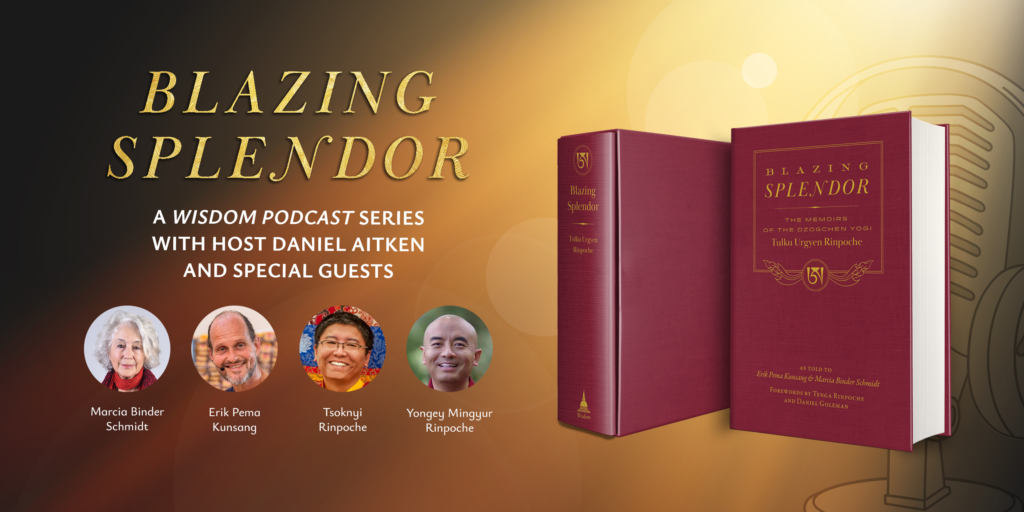
During October of 2024, we released a Wisdom Podcast episode every Friday in celebration of the release of the collector’s edition of Blazing Splendor. These episodes featured special guests intimately connected to the volume and Tulku Urgyen Rinpoche. Read on to discover more about each episode and its guests before diving in and listening to each.
Blazing Splendor | A Wisdom Podcast Series #1
Marcia Binder Schmidt: Meeting Tulku Urgyen Rinpoche (#194)
Published October 4, 2024
 In the first episode of this celebratory series of episodes, Wisdom Podcast host Daniel Aitken is joined by Marcia Binder Schmidt, one of the editors of Blazing Splendor and a student of Tulku Urgyen Rinpoche. During this episode, she and Daniel discuss:
In the first episode of this celebratory series of episodes, Wisdom Podcast host Daniel Aitken is joined by Marcia Binder Schmidt, one of the editors of Blazing Splendor and a student of Tulku Urgyen Rinpoche. During this episode, she and Daniel discuss:
• how she began to practice Tibetan Buddhism;
• her impactful first meeting with Tulku Urgyen Rinpoche;
• how the book Blazing Splendor came to be;
• her involvement in preserving Rinpoche’s teachings through books; and
• so much more.
![]()
Blazing Splendor | A Wisdom Podcast Series #2
Erik Pema Kunsang: Timeless Teachings with Tulku Urgyen Rinpoche (#195)
Published October 11, 2024
 In this second episode of our celebratory Blazing Splendor Wisdom Podcast Series host Daniel Aitken is joined by Erik Pema Kunsang. Enjoy hearing Erik share profound experiences with Tulku Urgyen Rinpoche in “Timeless Teachings with Tulku Urgyen Rinpoche,” including a story he’s never shared before.
In this second episode of our celebratory Blazing Splendor Wisdom Podcast Series host Daniel Aitken is joined by Erik Pema Kunsang. Enjoy hearing Erik share profound experiences with Tulku Urgyen Rinpoche in “Timeless Teachings with Tulku Urgyen Rinpoche,” including a story he’s never shared before.
During this episode, Daniel and Erik discuss:
• how Rinpoche led him to the realization of the mind’s true nature;
• Rinpoche’s unique teaching methods;
• his diverse skills and humility;
• the enduring influence Rinpoche has had on Erik and countless others; and
• so much more.
![]()
Blazing Splendor | A Wisdom Podcast Series #3
Tsoknyi Rinpoche: Insights from My Father and Teacher, Tulku Urgyen Rinpoche (#196)
Published October 18, 2024
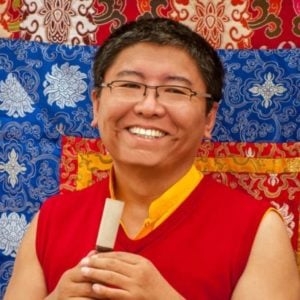 Welcome to the third episode of our celebratory Blazing Splendor Wisdom Podcast series! This episode was recorded earlier this year as a live Wisdom Dharma Chat where host Daniel Aitken was joined by special guest, Tsoknyi Rinpoche. During this episode, Rinpoche shares deep insights from his father, Tulku Urgyen Rinpoche’s teachings, along with personal anecdotes in celebration of the release of the collector’s edition of Blazing Splendor.
Welcome to the third episode of our celebratory Blazing Splendor Wisdom Podcast series! This episode was recorded earlier this year as a live Wisdom Dharma Chat where host Daniel Aitken was joined by special guest, Tsoknyi Rinpoche. During this episode, Rinpoche shares deep insights from his father, Tulku Urgyen Rinpoche’s teachings, along with personal anecdotes in celebration of the release of the collector’s edition of Blazing Splendor.
You’ll hear Daniel and Rinpoche discuss:
• Tulku Urgyen Rinpoche’s dual role in Rinpoche’s life as parent and teacher;
• Rinpoche’s handshake method, and his unique style of teaching;
• the most valuable teaching and advice that Tulku Urgyen Rinpoche gave to Rinpoche; and
• much more!
![]()
Blazing Splendor | A Wisdom Podcast Series #4
Yongey Mingyur Rinpoche: Tulku Urgyen Rinpoche’s Legacy (#197)
Published October 25, 2024
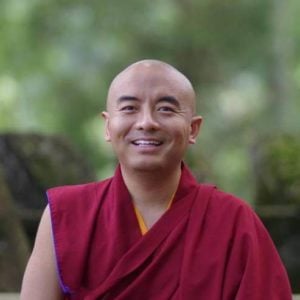 In this, the fourth and final episode of our celebratory series, Wisdom Podcast host Daniel Aitken is joined by special guest Yongey Mingyur Rinpoche! Listen as Rinpoche guides you on a journey throughout his life, beginning with his early memories of his father, Tulku Urgyen Rinpoche, the impact his father had on him and his own teaching, all the way to his father’s passing. This episode is also available as a special video podcast. You’ll hear Rinpoche:
In this, the fourth and final episode of our celebratory series, Wisdom Podcast host Daniel Aitken is joined by special guest Yongey Mingyur Rinpoche! Listen as Rinpoche guides you on a journey throughout his life, beginning with his early memories of his father, Tulku Urgyen Rinpoche, the impact his father had on him and his own teaching, all the way to his father’s passing. This episode is also available as a special video podcast. You’ll hear Rinpoche:
• share memories from his childhood in Kathmandu and the Himalayas;
• discuss his initiation into meditation by his father to help manage his panic attacks;
• his father’s teaching style and how it changed as he got older;
• Tulku Urgyen Rinpoche’s tukdam;
• the influence that his father had on him, his own practice, and teachings; and;
• so much more.
![]()
Blazing Splendor | A Wisdom Podcast Series #5 – Bonus Episode
Chökyi Nyima Rinpoche: The Legacy of Tulku Urgyen and the Path to Kindfulness (#207)
Published May 17, 2025
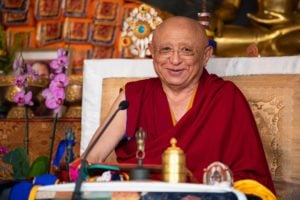 Join Chökyi Nyima Rinpoche and Daniel Aitken in this special bonus episode of our celebratory Blazing Splendor Wisdom Podcast series as they discuss The Legacy of Tulku Urgyen and the Path to Kindfulness. During this episode, Daniel and Rinpoche celebrate the rerelease of Blazing Splendor, and Rinpoche shares his memories and insights he gained from the teachings of his father, Tulku Urgyen Rinpoche. You’ll also hear Rinpoche and Daniel discuss:
Join Chökyi Nyima Rinpoche and Daniel Aitken in this special bonus episode of our celebratory Blazing Splendor Wisdom Podcast series as they discuss The Legacy of Tulku Urgyen and the Path to Kindfulness. During this episode, Daniel and Rinpoche celebrate the rerelease of Blazing Splendor, and Rinpoche shares his memories and insights he gained from the teachings of his father, Tulku Urgyen Rinpoche. You’ll also hear Rinpoche and Daniel discuss:
• Rinpoche’s impactful relationships with other high lamas and spiritual practitioners;
• the importance of practicing the foundational teachings of mindfulness, compassion, and ethical conduct;
• the essential role of mindfulness and kindfulness; and
• so much more.
![]()
About Tulku Urgyen Rinpoche & Blazing Splendor
Tulku Urgyen Rinpoche (1920–1996) is recognized as one of the greatest twentieth-century masters of Tibetan Buddhism and one of the first to bring the essential teachings of Buddhism beyond Tibet. Born into an illustrious family, he took as the core of his own practice the indivisibility of the three great traditions: the Dzogchen view of primordial purity and perfection, the Mahamudra view of mental nondoing, and the Middle Way view of holding no mental constructs. After fleeing Tibet shortly before the Dalai Lama, Tulku Urgyen Rinpoche devoted the rest of his life to trying to keep the spirit of the classical Tibetan spiritual system alive. Blazing Splendor is a translation of the name he was given by the head of the Kagyu order of Tibetan Buddhism, the name referring to the qualities of a realized master. He was a teacher without peer, who transformed the lives of those who came to him from the world over, among them Joseph Goldstein, Sharon Salzberg, Tara Bennett-Goleman, and Lama Surya Das.
“Tulku Urgyen Rinpoche was among Tibetan Buddhism’s greatest teachers of the twentieth century. His memoir, Blazing Splendor, invites us to join him as he looks back over a life that put him at the center of an unparalleled spiritual abundance. Through his unblinking eyes we meet remarkable contemplative adepts. And through the lens of his awakened awareness, we see the world from a fresh, eye-opening perspective. It is a sweeping account that shares with readers a world where miracles, mystery, and deep insight are the order of the day—a world as reflected through the open, lucid quality of Tulku Urgyen’s mind.”—from the foreword by Daniel Goleman, author of Emotional Intelligence
An insightful memoir illuminating the profound experiences and magical world of a Tibetan Buddhist master.
Blazing Splendor is a rare and profound gift: an intimate view into the world of one of the most celebrated and influential meditation masters of the last century. In these memoirs, Tulku Urgyen Rinpoche (1920–1996) recounts with incredible lucidity and humility his unique spiritual and familial heritage, his training in Tibetan Buddhism, and remarkable encounters with some of the most renowned masters of Tibet. This wide-reaching narrative stretches across generations to provide insight into the lived experience of contemplative adepts and into life before and after the Cultural Revolution, which left Tibet changed forever.
Born the great-grandson of the seminal terma-revealer Chokgyur Lingpa and a holder of both Nyingma and Kagyu lineages, Tulku Urgyen Rinpoche tells us of his unique family legacy, in which each generation has been saturated with spiritual accomplishments. He tells of how he, in time, became responsible for learning and then transmitting this lineage of Buddhist teachings, which continues today in the flourishing activities of his surviving sons Chokyi Nyima Rinpoche, Yongey Mingyur Rinpoche, and Tsoknyi Rinpoche. Blazing Splendor is a window into the life of a Mahamudra and Dzogchen master that illuminates the transmission of sacred teachings in a modern world—a world we inhabit too, where the miraculous and the mundane exist side by side.
This special, revised edition of the modern classic includes a handsome slipcase and features new images and color illustrations.
“Reading Blazing Splendor, I am transported back to my childhood at Nagi Gompa, where my father, Tulku Urgyen Rinpoche, shared these captivating stories of our family lineage and the remarkable beings that traversed his extraordinary life. The way these stories emanated from him speaks to the very essence of Dzogchen—heart wide open, ordinary and natural with a clarity unobstructed by details of place and time. As a child, I had no idea of the incredible impact and inspiration these living stories would have on my own life and the potential they could set alight in others. These profound teachings, hidden in plain sight, and offered with such warm-hearted generosity, make clear his unceasing devotion to his own teachers, and radiate the wisdom of the nine yanas.”—Yongey Mingyur Rinpoche
“Devotion is the core and essence of the precious Vajrayana path. If you want to hear and feel that devotion expressed in the clearest, most inspiring, and most eloquent possible way, you can’t do better than read these wonderful memoirs of the great Tulku Urgyen Rinpoche. Not only did he himself embody that devotion, but his personal stories introduce us intimately to some of the past century’s greatest living masters. This is truly a must-read for Vajrayana practitioners.”—Dzongsar Jamyang Khyentse Rinpoche
“In Blazing Splendor, Tulku Urgyen Rinpoche, one of Tibetan Buddhism’s most recent great masters, offers an intimate and in-depth history of Tibetan Buddhism through his own eyes. His firsthand accounts create a compelling narrative, spanning from the arrival of Buddhism in Tibet to the Cultural Revolution and beyond, providing rare insight into the personalities and stories of the lineage holders preceding him. This new edition also includes beautiful photos and imagery to further illustrate his story.”—Sharon Salzberg, author of Lovingkindness and Real Life
Dzokchen
Dudjom Rinpoche’s classic meditation manual on realizing the Great Perfection, presented and explained by Lama B. Alan Wallace.
In the concise yet comprehensive practice manual entitled Illumination of Primordial Consciousness, the great twentieth-century Tibetan Nyingma master Dudjom Rinpoche lays out a sequential path to spiritual freedom according to the teachings of the Great Perfection (Dzokchen): First, we refine our awareness by training in meditative quiescence (shamatha) and then proceed to the practices of insight meditation (vipashyana), by which our mind’s basic nature of luminosity and emptiness is revealed. Then, having recognized that the ordinary, deluded mind is actually without any intrinsic essence, we are primed to cut through this conditioned mind into unborn, timeless pristine awareness, which has never been contaminated by mental afflictions or other obscurations. Finally, we realize that our own awareness has never been other than the dharmakāya, the mind of a buddha, and perfect enlightenment is realized spontaneously and effortlessly.
Beloved teacher and renowned scholar Lama B. Alan Wallace guides the reader through this remarkable text, which he first translated for his teacher Gyatrul Rinpoche’s book Meditation, Transformation, and Dream Yoga. In this book, Lama shares insights gained over years of study, providing a line-by-line explanation interspersed with background teachings from revered Dzokchen scriptures written by Padmasambhava, Dudjom Lingpa, and others. Also included are a set of fifteen guided meditations given by Lama Wallace, along with links to audio tracks of Lama Wallace giving the instructions himself. Through the practices he describes, the mystery of the mind—its origin and what happens to it at death–is thus illuminated through one’s own meditative experience.
Lama Alan has provided several guided meditations to accompany this book and they can be found here.
Blazing Splendor
An insightful memoir illuminating the profound experiences and magical world of a Tibetan Buddhist master.
Blazing Splendor is a rare and profound gift: an intimate view into the world of one of the most celebrated and influential meditation masters of the last century. In these memoirs, Tulku Urgyen Rinpoche (1920–1996) recounts with incredible lucidity and humility his unique spiritual and familial heritage, his training in Tibetan Buddhism, and remarkable encounters with some of the most renowned masters of Tibet. This wide-reaching narrative stretches across generations to provide insight into the lived experience of contemplative adepts and into life before and after the Cultural Revolution, which left Tibet changed forever.
Born the great-grandson of the seminal terma-revealer Chokgyur Lingpa and a holder of both Nyingma and Kagyu lineages, Tulku Urgyen Rinpoche tells us of his unique family legacy, in which each generation has been saturated with spiritual accomplishments. He tells of how he, in time, became responsible for learning and then transmitting this lineage of Buddhist teachings, which continues today in the flourishing activities of his surviving sons Chokyi Nyima Rinpoche, Yongey Mingyur Rinpoche, and Tsoknyi Rinpoche. Blazing Splendor is a window into the life of a Mahamudra and Dzogchen master that illuminates the transmission of sacred teachings in a modern world—a world we inhabit too, where the miraculous and the mundane exist side by side.
This special, revised edition of the modern classic includes a handsome slipcase and features new images and color illustrations.
Yoga for Meditators
Going deeper in our practice isn’t always about spending more time on the cushion. For centuries, the great practitioners and masters have known that there are specific ways of working with body and breath which are essential to profound practice.
Through movement and breath practices drawn from these traditions, this new online course reveals the physical keys to deeper meditation.
Learn from three teachers who’ve spent decades bridging these ancient wisdom streams—discovering not just how to sit longer, but how to access the profound stillness that is the ground of awakening.
Save your seat now and experience how these practices can take your meditation practice to profound new depths.
The course begins on May 16 and runs for 10 weeks. Scroll down for a full schedule.
Tuition: $297
Includes lifetime access for enrolled students!
This course is not included in special sales. After enrolling, check your email for a welcome email with instructions on how to take the course. When you enroll in any Wisdom Academy course, you agree to our terms of use. Enrolled students have lifetime access to course materials. Wisdom is a 501(c)(3) nonprofit. Your tuition supports the creation of more courses like this one. Thank you! For more about our terms, please see the Wisdom Academy FAQ.
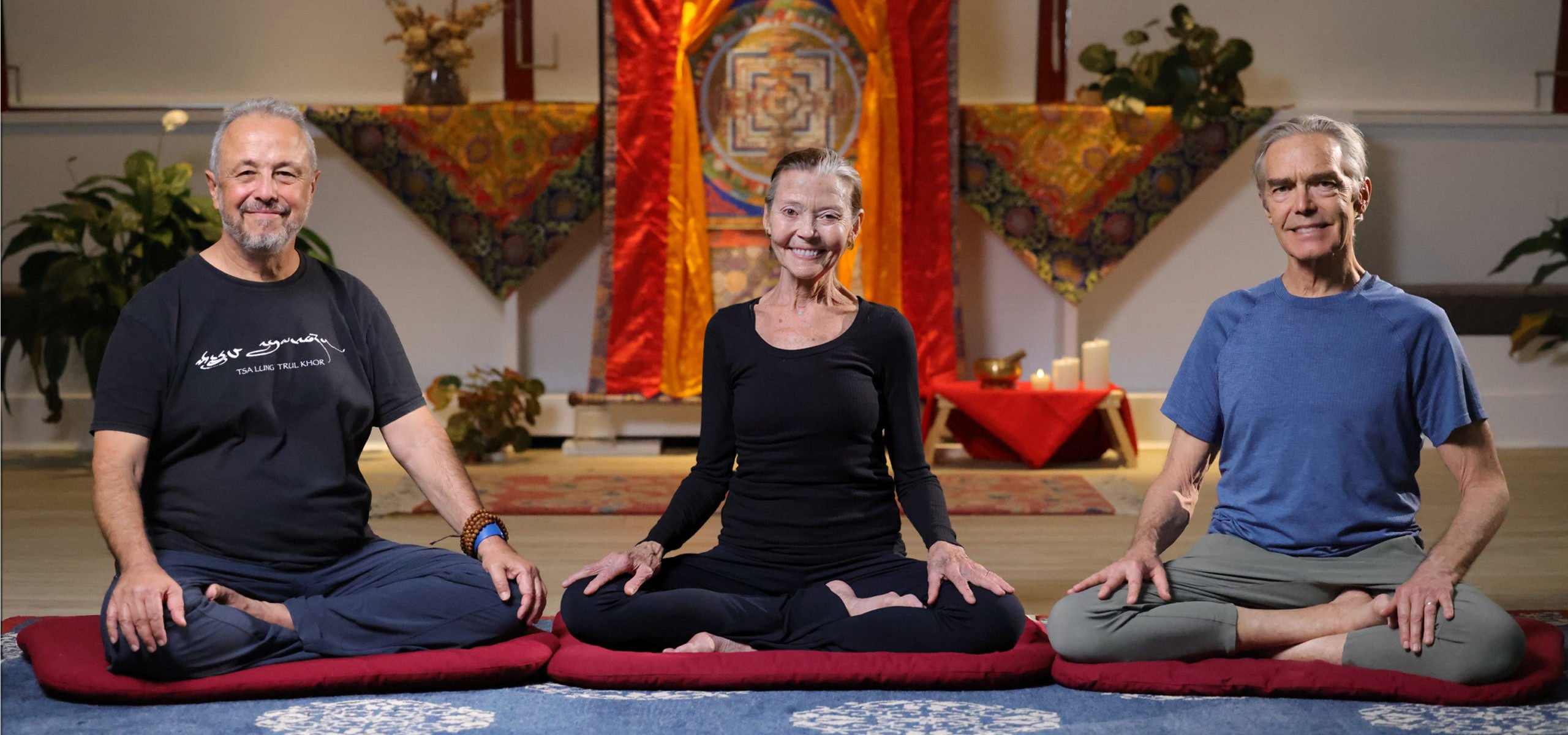
Calm Breath, Calm Mind
In this new online course from beloved Bön teacher Geshe YongDong Losar, find out how your breath can be a guide on your journey from suffering to profound well-being.
In the course, Geshe-la guides you through a deep exploration of the breath. Rooted in the Tibetan Bön tradition, the breath and movement practices you’ll learn will help you rediscover your breath as a calming and liberating vehicle for your journey from suffering and stress to freedom and ease.
Tuition: $297
Includes lifetime access for enrolled students!
After enrolling, check your email for a welcome email with instructions on how to take the course. When you enroll in any Wisdom Academy course, you agree to our terms of use. Enrolled students have lifetime access to course materials. Wisdom is a 501(c)(3) nonprofit. Your tuition supports the creation of more courses like this one. Thank you! For more about our terms, please see the Wisdom Academy FAQ.
The Illusory Body and Mind
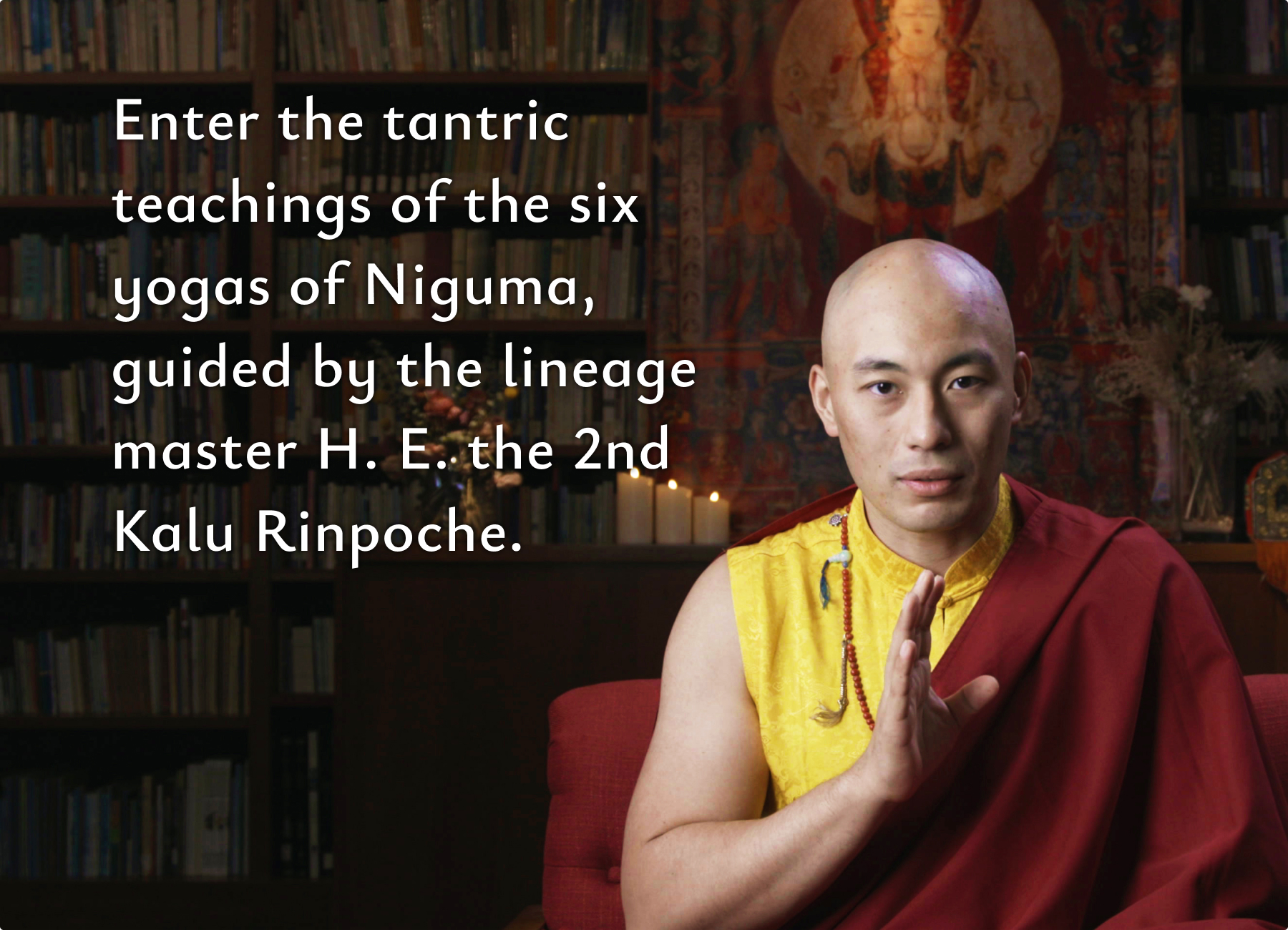
H. E. Kalu Rinpoche possesses a remarkable ability to convey the true power and possibility of the Dharma.
In this online course, he delves deep into Vajrayana practice as he shares the teachings of numerous pioneers of the Shangpa school of Tibetan Buddhism, including Niguma, Sukhasiddhi, Tangtong Gyalpo, Taranatha, and Jamgon Kongtrul Lodro Thaye.
You’ll be guided through an introduction to two key completion stage practices from among Niguma’s six yogas—the illusory body and mind and bardo (intermediate state) practices.
Tuition: $297 USD
This course is in self-study mode, so you can take it at your own pace. After enrolling, check your email for a welcome email with instructions on how to take the course. When you enroll in any Wisdom Academy course, you agree to our terms of use. Enrolled students have lifetime access to course materials. Wisdom is a 501(c)(3) nonprofit. Your tuition supports the creation of more courses like this one. Thank you! For more about our terms, please see the Wisdom Academy FAQ.
The Great Hūṃ
Śāntideva’s Way of the Bodhisattva (Bodhicaryāvatāra) is without a doubt one of the greatest masterpieces of Indian Buddhism and the single most influential text on Mahāyāna ethical theory. Since it was composed in around the eighth century, it has continuously animated the living tradition, especially in Tibet but now in the West as well, as more translations have become available. Its poetic evocations of the spirit of awakening allow readers to enter the mind of the bodhisattva.
Its longest commentary in any language is the one translated here, by the nineteenth-century master Minyak Kunzang Sönam. It came to be known as the Great Hūṃ because it fills the entirety of the third or hūṃ volume of the author’s collected works. Citing hundreds of sūtras, he shows how Śāntideva’s verses are beautifully integrated within, and express, the Buddhist textual universe. In particular, he ties Śāntideva’s verses with the Anthology of Training, the thematic collection of scriptural citations also compiled by Śāntideva, creating a detailed tapestry of Mahāyāna thought and practice. This volume presents Kunzang Sönam’s commentary on the first eight chapters, detailing the generation of the spirit of awakening, the cultivation of positive qualities, and the practice of meditation. Embedded in the commentary is a fresh translation of Śāntideva’s verses, making this an unparalleled guide to appreciating their layers of meaning and applying them in one’s practice and life.
You can access the translation of Śāntideva’s verses here.
You can access the complete native outline (sa bcad) here.
Ācārya Malcolm Smith: The Dzogchen Aural Lineage (#205)
Join Daniel Aitken and Ācārya Malcolm Smith as they discuss the roots of Dzogchen and the aural lineage in the Great Perfection tradition as described in Malcolm’s newest translation Yoga Of The Natural State, releasing in the winter of 2025 and available now for pre-order. In this episode of the Wisdom Podcast, recorded live as a Wisdom Dharma Chat, explore the historical transmission of Dzogchen teachings through the textual and aural lineages and the roles these play in preserving the authenticity and comprehensibility of the teachings. You won’t want to miss this illuminating conversation.
You’ll hear Daniel and Malcolm discuss:
- the process of translating Longchenpa’s writings;
- differences between ‘awareness of awareness’ and the true nature of rigpa;
- key Dzogchen terms such as original purity (ka dag) and natural perfection (lhun grub);
- Chogyal Namkhai Norbu and his impact on spreading Dzogchen teachings to the West; and
- much more!

Remember to subscribe to the Wisdom Podcast for more great conversations on Buddhism, meditation, and mindfulness. If you enjoy the show please consider giving us a 5-star rating in Apple Podcasts—it’s a great support to us and helps other people find the podcast. Thank you!
In-Depth Member Content
LATEST | POPULAR | COURSES | BOOKS | OTHER
LATEST & UPCOMING CONTENT
• 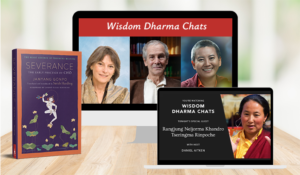 Register for one of our upcoming Wisdom Dharma Chats hosted by Daniel Aitken
Register for one of our upcoming Wisdom Dharma Chats hosted by Daniel Aitken
• Read Severance: The Early Practice of Chö, by Jamyang Gönpo, translated by Sarah Harding, and join her on Wisdom Dharma Chats this Wednesday, July 2.
• Watch the recording of Rangjung Neljorma Khandro Tseringma Rinpoche on Wisdom Dharma Chats
• Learn from the beloved Bhante G. in the newest online course added to the Wisdom Experience Course Catalog for In-Depth members, Mindfulness in Plain English
MOST POPULAR
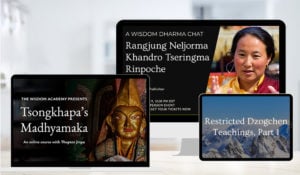 • Study Dzogchen with Lama Alan Wallace in his course, Introduction to Dzogchen (General cost: $247, available for free In-Depth members)
• Study Dzogchen with Lama Alan Wallace in his course, Introduction to Dzogchen (General cost: $247, available for free In-Depth members)
• Watch our Wisdom Dharma Chats episode with Khentrul Lodrö T’hayé Rinpoche
• Learn with Professor Jay Garfield in his course, Buddhist Philosophy in Depth, Part 1 (General cost: $247, available free for In-Depth members)
• Watch Venerable Robina Courtin on Wisdom Dharma Chats
• Read ‘A Lost Work on the Stages of the Path (Lamrim)’, an excerpt from Atiśa’s Stages of the Path to Awakening by James B. Apple
SELECTED COURSES
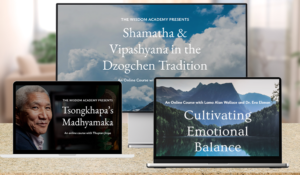
To see the full Wisdom Experience Course Catalog, click here.
• Shamatha & Vipashyana in the Dzogchen Tradition with Lama Alan Wallace (General cost: $247, available free for In-Depth members)
• Tsongkhapa’s Madhyamaka with Thupten Jinpa (General cost: $397, available free for In-Depth members)
• Restricted Dzogchen Teachings, Part 2: Buddhahood without Meditation (General cost: $547, available free for In-Depth members)
• Cultivating Emotional Balance with Lama Alan Wallace and Dr. Eve Ekman (General cost: $247, available free for In-Depth members)
SELECTED BOOKS
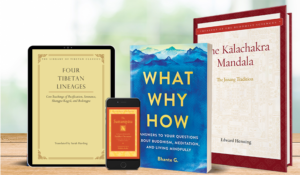 To see all the books available in the Reading Room, click here, and don’t forget that as an In-Depth member, you get 20% off all book purchases through our website.
To see all the books available in the Reading Room, click here, and don’t forget that as an In-Depth member, you get 20% off all book purchases through our website.
• Read The Kalachakra Mandala translated by Edward Henning
• Read Four Tibetan Lineages translated by Sarah Harding
• Read The Suttanipata translated by Bhikkhu Bodhi
• Read What, Why, How by Bhante G.
SELECTED OTHER CONTENT
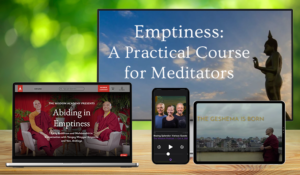
To see other video content available, click here.
• Listen to Alejandro Chaoul, Richard Freeman, and Mary Taylor on the Wisdom Podcast in their episode: Yoga for Meditators
• Watch this episode of Wisdom Dharma Chats with Pema Sherpa and Brendan Barca, co-authors of The Daily Buddhist.
• Abiding in Emptiness with Yongey Mingyur Rinpoche and Venerable Bhikkhu Anālayo (General cost: $397, available for free In-Depth members)
• Emptiness: A Practical Course for Meditators, taught by Guy Armstrong
• Watch The Geshema is Born and all of our movies
• All of our Wisdom Lecture Series, including Buddha Revolution, taught by Robert Thurman
Not an In-Depth Member?
Don’t worry, join now.
The Four Noble Truths
The Four Noble Truths begins with an excellent elucidation of the nature of the mind and its role in creating the happiness we all seek. Lama Zopa Rinpoche then turns to an in-depth analysis of the four truths. The first truth is that we are suffering because we are in cyclic existence, or samsara, the beginningless cycle of death and rebirth characterized by three types of suffering: the suffering of suffering, the suffering of change, and pervasive compounding suffering. These are not inflicted on us without cause, nor do they come from others. The second truth tells us that there is a cause for all this suffering—the delusions and karma that arise from the ignorance that fails to see the way in which things exist. Because there is a cause and because we can develop the wisdom realizing emptiness, the antidote to ignorance, we are able to actualize the third truth, the cessation of suffering. How we do that is explained in the fourth truth, the path to the cessation of suffering.
In the Buddha’s Words
This landmark collection is the definitive introduction to the Buddha’s teachings—in his own words. The American scholar-monk Bhikkhu Bodhi, whose voluminous translations have won widespread acclaim, here presents selected discourses of the Buddha from the Pali Canon, the earliest record of what the Buddha taught. Divided into ten thematic chapters, In the Buddha’s Words reveals the full scope of the Buddha’s discourses, from family life and marriage to renunciation and the path of insight. A concise, informative introduction precedes each chapter, guiding the reader toward a deeper understanding of the texts that follow.
In the Buddha’s Words allows even readers unacquainted with Buddhism to grasp the significance of the Buddha’s contributions to our world heritage. Taken as a whole, these texts bear eloquent testimony to the breadth and intelligence of the Buddha’s teachings, and point the way to an ancient yet ever-vital path. Students and seekers alike will find this systematic presentation indispensable.
Learn more about the Teachings of the Buddha series.
Yoga for Meditators
Going deeper in our practice isn’t always about spending more time on the cushion. For centuries, the great practitioners and masters have known that there are specific ways of working with body and breath which are essential to profound practice.
Through movement and breath practices drawn from these traditions, this new online course reveals the physical keys to deeper meditation.
Learn from three teachers who’ve spent decades bridging these ancient wisdom streams—discovering not just how to sit longer, but how to access the profound stillness that is the ground of awakening.
Save your seat now and experience how these practices can take your meditation practice to profound new depths.
The course begins on May 16 and runs for 10 weeks. Scroll down for a full schedule.
Tuition: $297
Includes lifetime access for enrolled students!
This course is not included in special sales. After enrolling, check your email for a welcome email with instructions on how to take the course. When you enroll in any Wisdom Academy course, you agree to our terms of use. Enrolled students have lifetime access to course materials. Wisdom is a 501(c)(3) nonprofit. Your tuition supports the creation of more courses like this one. Thank you! For more about our terms, please see the Wisdom Academy FAQ.

Mind Training
“Mind training” or lojong is a popular and highly effective approach for cultivating the awakening mind.
It’s a simple yet powerful method for radically transforming our minds away from self-centeredness and toward the awakened mind of other-centered altruism.
Now, you can discover this transformation for yourself in the Wisdom Academy’s new online course with Thupten Jinpa, renowned translator, scholar, author, teacher, and principal English translator for His Holiness the Dalai Lama.
In this 10-week course, you’ll journey far beyond the traditional seven-point mind training. With Jinpa as your guide, you’ll be introduced to a much broader, deeper, and more profound way of understanding and practicing lojong.
Your Tuition: $397
This course is in self-study mode, so you can take it at your own pace. After enrolling, check your email for a welcome email with instructions on how to take the course. When you enroll in any Wisdom Academy course, you agree to our terms of use. Enrolled students have lifetime access to course materials. Wisdom is a 501(c)(3) nonprofit. Your tuition supports the creation of more courses like this one. Thank you! For more about our terms, please see the Wisdom Academy FAQ.
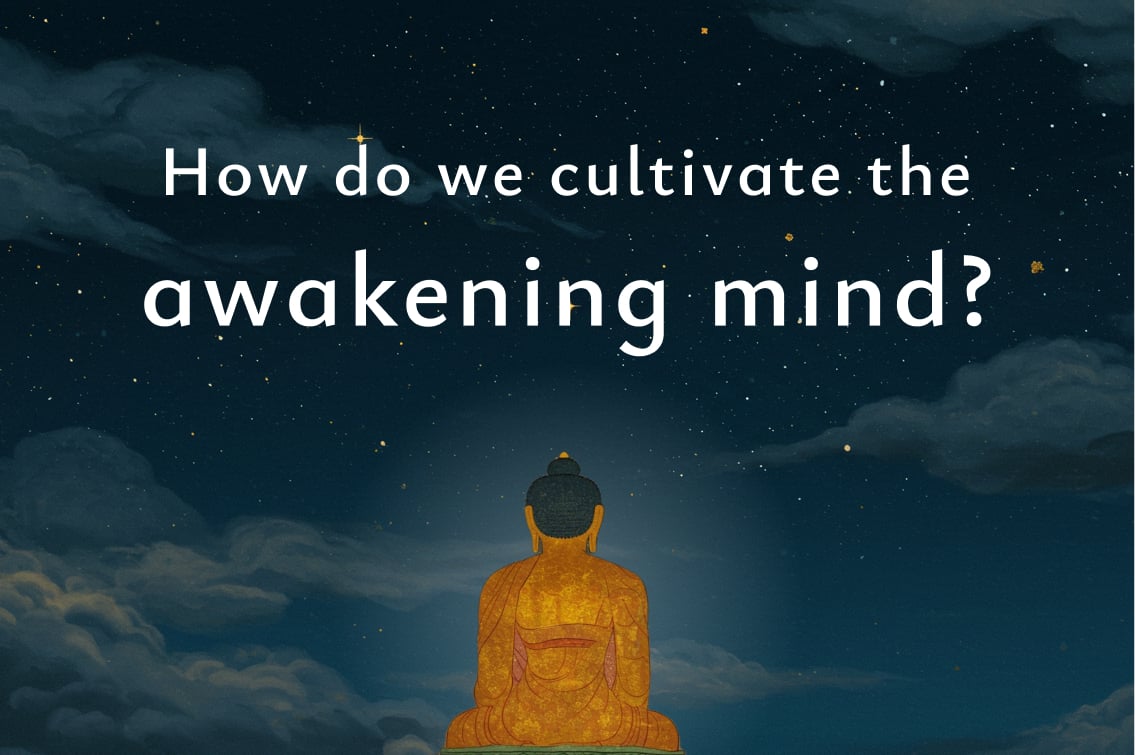
Through inspiring teaching videos, specially-curated readings (including a brand new translation from Jinpa, created for this course), guided practices, and live Q&As with Jinpa, you’ll begin to see the vast potential of mind training for your own mind and life.
Part of what lojong practice reveals to us is the unlimited power our mind has to truly uproot our self-cherishing and self-attachment, to turn suffering into resilience and strength, and to see what it would mean to live each day with an awakening mind.
Come find out for yourself. Enroll today and begin a profound journey of transformation.
This course is in self-study mode, so you can learn at your own pace. Read on for more information or click the button below to save your seat today.
Tuition: $397
This course is in self-study mode, so you can take it at your own pace. After enrolling, check your email for a welcome email with instructions on how to take the course. When you enroll in any Wisdom Academy course, you agree to our terms of use. Enrolled students have lifetime access to course materials. Wisdom is a 501(c)(3) nonprofit. Your tuition supports the creation of more courses like this one. Thank you! For more about our terms, please see the Wisdom Academy FAQ.
The Wisdom Academy
Welcome to the Wisdom Academy — your trusted home for authentic Buddhist teachings online. Since 2016, we’ve guided over 8,000 students through more than 50 transformative courses taught by revered teachers.

Whether you’re interested in exploring emptiness, compassion, dzogchen, mahamudra, vipassana, or another area of practice, our carefully structured courses build from foundational understanding to the profound.
Experience how these timeless teachings create vivid and immediate pathways to ease, joy, and freedom beyond conventional existence.

Introduction to Dzogchen
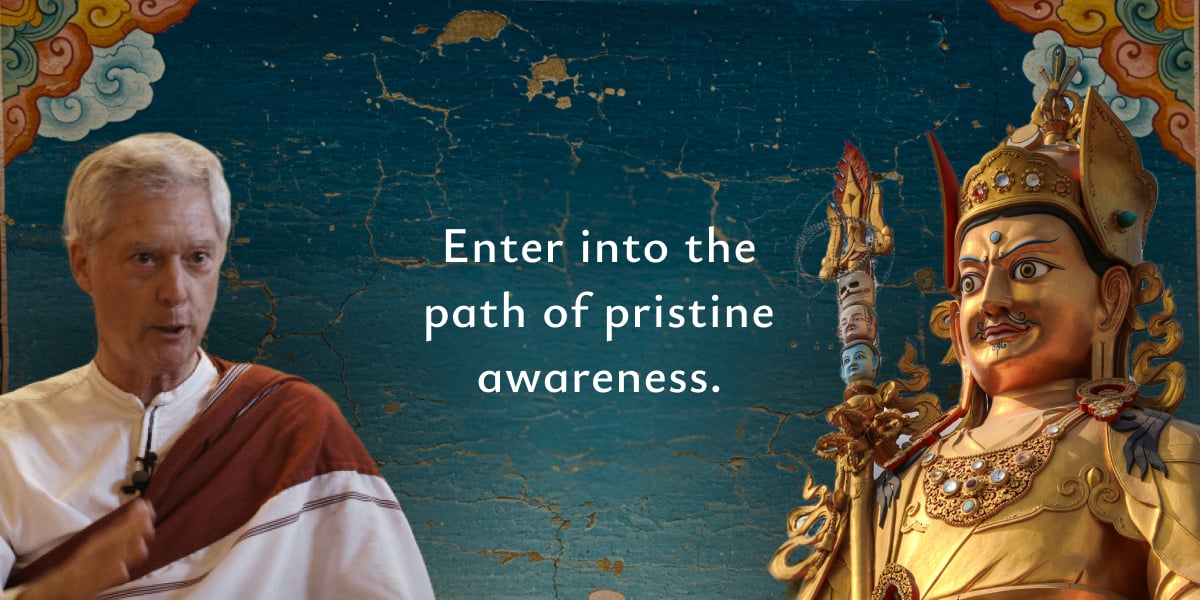 Dzogchen, or the “Great Perfection,” is regarded by many to be the pinnacle of the Buddhist teachings, presenting the most direct path to realizing our true nature hidden within the deepest dimensions of consciousness.
Dzogchen, or the “Great Perfection,” is regarded by many to be the pinnacle of the Buddhist teachings, presenting the most direct path to realizing our true nature hidden within the deepest dimensions of consciousness.
In this popular Wisdom Academy online course, join renowned translator, Buddhist teacher, and author Lama Alan Wallace as he relays his immense knowledge of Dzogchen through memorable and engaging teachings.

